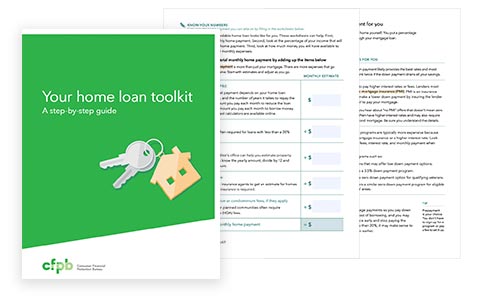Accrued Interest
Interest that you have accumulated on a loan but not yet paid to your lender. Mortgage interest accrues daily or weekly depending on your loan type, and is based on your loan’s principal balance and mortgage rate.
Adjustable Rate Mortgage (ARM)
Also known as a variable rate mortgage, an Adjustable Rate Mortgage is a loan with an interest rate that changes periodically based on changes in the market. After an initial fixed-rate period (usually 5, 7 or 10 years), your interest rate either increases or decreases once per year. An included interest rate cap safeguards you from dramatic payment changes.
Amortization
Is paying off an amount owed over time by making planned, incremental payments of principal and interest.
Annual Percentage Rate (APR)
The annual percentage rate (APR) is the cost of a loan on a yearly basis and is shown as a percentage. The APR gives you more information about the actual cost of the loan, reflecting interest charges as well as points and other fees.
Appraisal
An independent, professional evaluation that helps establish a property’s market value – the sales price a home would bring if offered in an open and competitive real estate market. Appraisals are usually required to ensure that the mortgage loan amount is not greater than the value of the property.
Appreciation
Appreciation is the increase in the value of a property over time. Home improvements or changes in the housing market can cause the property’s value to change.
Balance
The balance is the full dollar amount of a loan that is left to be paid. The balance is equal to the loan amount minus the sum of all prior payments to the principal.
Borrower
Also known as a mortgagor, a borrower is an individual who qualifies for and receives funds through a loan. The borrower is obligated to repay the loan in full under the terms of the loan.
Broker
A person who is licensed to handle property transactions and who acts as a go-between for buyers and sellers.
Cash-Out Mortgage Refinance Loan
When you refinance with a cash-out mortgage, you get cash back from the equity in your home. The amount is determined by the difference between your new loan and the remaining balance on your current mortgage. The cash-out can be used for anything from home improvements to college tuition.
Closing
Also known as the settlement, closing is the conclusion of your real estate transaction. It includes the signing of legal documents and the disbursement of the funds necessary for the sale of your home or your refinance transaction.
Closing Costs
Also known as settlement costs, mortgage closing costs are fees charged for services that are required to process and close your loan application. Closing costs include things like: taxes, title fees, recording fees, appraisal fees, credit report fees, inspection fees, attorney’s fees, and surveying fees.
Co-Borrower
A co-borrower or co-applicant is a person who, along with you, accepts responsibility for repaying a loan.
Combined Loan-to-Value Ratio
The combined loan-to-value ratio is the sum of the balances of all loans on a property divided by the property’s value. This ratio is usually denoted as a percentage.
Compound Interest
Interest that is added not only to the principal of a loan or savings account, but also to the interest already added to the loan or account; interest paid on interest.
Conforming Loan
For a mortgage loan to be conforming, it must meet the specific criteria that allow Fannie Mae and Freddie Mac to purchase the loan.
Construction Loan
A construction loan is often used to build a house or make major renovations. This can be a great option if you want to: build a new home, add on to your current home, and/or make a major renovations. With a construction loan, you usually only need to qualify once, sign one set of documents, and only pay one set of loan fees for both construction-phase financing and a permanent mortgage!
Conventional Loan
Any type of mortgage that is not secured by a government-sponsored entity, such as the Federal Housing Administration (FHA) or the Veterans Administration (VA).
Credit Score
A number generated through statistics systems that evaluate your credit. Scores are based on various factors including loan repayment, outstanding debt, credit cards, bankruptcies, collections, and judgements.






